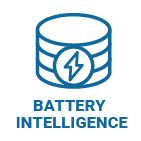
Cambridge EnerTech's
Battery Intelligence for Automotive Applications
Using Machine Learning and Artificial Intelligence to Optimize Battery Development from Materials to Manufacturing
December 13-14, 2023
As the battery market rapidly expands so does the need to optimize lifetime performance. For OEMs, battery pack manufacturers, electric fleet managers, and Electric Vehicle (EV), the key to unlocking battery life lies in the data. Core potential of battery data when utilizing machine learning and data analytics methods can accurately determine, predict, and improve battery life. To achieve high battery efficiency and operational reliability, predictive intelligence and data analytics will play key roles as artificial intelligence becomes more disruptive in the battery technology space. The Battery Intelligence for Automotive Applications conference will bring thought leaders from industry and academia to discuss how organizations can use battery intelligence to improve battery life significantly and continuously.